|
It was the day after what was unquestionably the worst night in my entire bus-driving career. We're not going to talk about it, for reasons articulated in the now-legendary post from last year where I describe in detail what a tough bus-driving day feels like. Generally the bad days are cumulative pileups of stress triggers leading to a poor choice made by you, the operator, toward the wrong passenger at the wrong time. Which is what I did. In a catastrophic lapse of judgment, I hadn't noticed the degree to which a certain topic by a passenger was important to him, and treated his seriousness in a cavalier manner. What happened next I brought upon myself. A driver recently reminded me of something I told him years ago, which I hadn't realized had had a profound impact on him:
You have to be able to let people have the last word. Life is a lot easier that way. Part of why we as bus drivers get paid, in my opinion, is to exercise that discipline. It isn't easy, but the dividends are real. That dictum is exactly what my stressed and overconfident self was blind to in that moment. I've processed most of it out by now, talking at length with two close operator friends of mine, but seeing the coach on which it happened still leaves a sour taste in my mouth. It could've been much worse, but 4533, to me, is a number representing failure. It was awful. I didn't even bother calling the police. Why foist their unmerciful brawn might onto somebody whose actions I could so easily have refrained from provoking? He wasn't doing the tango all alone. Had I only been more focused, more present and empathetic… oh, how we never stop learning. Tonight was better. Tonight was the same run, and I thus had a chance to "erase it–" do the exact same trips again, have them go well, and thus wipe the slate clean. Operators, you know what I mean. Erasing can be terrifying at first– you're the very opposite of confident– but it's worth it. With each new trip a little bit of yourself comes back, and ultimately it's a cleansing and necessary experience. You're proving to yourself you can still do it, you can do it better than before. If you never do that run again, you'll never really know that about yourself. You've got to just get out there and erase. Tonight's erasing session was a good one. I made it. I didn't mention word one of it to any of the passengers, except to answer Yolanda's question about my previous night by saying, "Last night was funky!" "Ha! He said, 'it's funky!' Yeah, I think it was a full one." "Oh, man! I don't even know what happened last night!" I walked back into the base at one a.m., where a few other operators were commiserating over their respective nights. I love these late-night interactions. I've been driving for longer than most operators who are out that late, and a couple nodded deferentially to me. Here was Stephen, his face glowing with a smile as always. We beamed our positive force-fields at each other. How could you not love the guy? In his forties, spotless uniform, always with the friendly baseball cap, probably a family man, his dark skin, accent, and smile absolutely radiant. You stand in the same room with certain people, and you're already feeling better. I said, "it was good to see you last night on the 7!" His friendly wave had been particularly useful. "Yes," he replied, "except it was a crazy night!" "Yes? For me too!" "What time did you get back?" "Same time, just… the people!" "Yes!" he exclaimed. "On your bus too?" Maybe I'm not the only one. "Yeah, people are drunk, they are fighting…!" "Yeah, on mine too! I don't know what happened!" We were both laughing now, you could really say giggling, bubbling over with a relief neither of us realized would feel this good. "There were very unhappy people!" we exclaimed, in between unstoppable chuckles, able to see the night's absurdity now. "They were not having a very good day!" After catching my breath, I said, "I feel like there are a couple of days out of the year that are exceptionally challenging, and last night was one of them." "Yes." "It was crazy! It was so ridiculous!" I walked up to my locker, following Solomon. Solomon is like Stephen– always in a good mood whenever I see him, though the current troubles in his home country of Ethiopia have brought an uncharacteristic furrow to his brow of late. He drives the 70 in the way I drive the 7– constantly. "Mister Solomon! How was the 70?" "You know. The same. All the people were the same, the traffic was the same…." "That can be good." "What about you? I heard you say downstairs," "Yeah, it was completely crazy. But tonight I drive the same thing as last night–" "I know!" "Ha! Yeah, I do the same run and getting to do the same one all over again is like erasing everything, making a clean slate. So tonight was great." "That's good." We return to our better selves not in one fell swoop, but in brief increments, small steps back to a righted path. These brief interactions are what those steps look like. The erasing session was invaluable, the processing with operator friends restorative, but no less remedial were these exchanges in the wee hours, spikes in the mean of our jovial good judgment, symbiotic therapy disguised as just a couple of throwaway moments. They are so much more.
6 Comments
The 107 frequency is better than it used to be, but at the time of this story it was catastrophically awful. Hourly after seven or eight p.m., depending on the day of the week? What gives? The 7, which is fifteen-minute service 'til midnight, blows it out of the water. North of Henderson street, where the 7 terminates, receives amazing bus service; south of this fairly arbitrary line, the service plunged to abysmal levels, regardless of the fact that just as many folks live south of it. The issue has since been addressed with a realignment and doubling of frequency on the 106 (which used to be hourly after ten p.m.- intolerable for the buzzing, transit-dependent hive of Rainier Valley), and more trips on the 107– half-hourly until eleven thirty or so. Not bad at all.
But until two weeks ago, "Waiting the Wait" was what needed to be done. Sitting around on your way home for forty-five minutes at Rainier & Henderson– no one's idea of a great place to spend that amount of time at night– was par for the course. These two were Waiting the Wait, having just left my 7, now "doing their time," as it were, sitting out the remaining fifty-odd minutes until their last leg home arrived. The driver bathroom (called a Comfort Station! Bus lingo lesson for the day!) was immediately adjacent to the old 107 bus stop, and I had to walk past the zone to get to it. There have been times when this required a deep breath and a game-for-anything attitude, but it always turned out, and tonight was easy. They were a young couple I recognized from many trips before, travelling tonight without their child. I nodded and greeted them. She, a mixed-race woman in her late teens, looked up from her phone and said something clever. I've since forgotten her remark, but we both laughed. Her male companion was the young black american man with the friendly face, the quiet face, who'd expressed grateful surprise when I once gave him a free ride. Tonight he was doubled over himself on the bench, resting, his hooded head cradled in his arms and resting on his knees. Sometimes there's nothing to do but wait. Upon exiting the comfort station and I said, "guys have a good night!" She responded in kind. He remained seated and silent, with his face in his arms. I imagined he perhaps had headphones in to pass the time, and that he hadn't heard me. Which would be fine. But no, he had heard me. I saw a hand extending out from one of the overlong sleeves, a small motion and one you might miss, especially as it was not accompanied by speech; but there from this cloaked and resting figure was a hand, formed in the universal gesture of peace, two fingers. I smiled deeply, rich in the equivalence of his gesture, the acknowledgment of it, three accepted members of the community sharing kindness, cognizant of our equal part in the twenty-first century human endeavor. A companion was telling me recently of her friend group, people in her field who are meaningful to her. I reflected on my own circles. I adore them all, from the fellow filmmakers, photographers, childhood and college friends, film buffs, writers, painters, actors, gallerists, operators, planners and others… but what really humbles me is the degree to which the People of the Street (do I really need to define this? You know what I mean. Just read the half-thousand or so blog stories here!) have welcomed me into their fold. To be driving down the far reaches of Rainier Valley, buried out there in the dark night, or rumbling through the untamed wilderness of Aurora Avenue, and feel… loved? By what madness did this happen? I look, sound, and dress nothing like most of these guys, and yet… and yet…. Nobody told me it would turn out like this. Within the circle of drivers and supervisors I knew when I started, the idea didn't exist yet. I remember the first second of the first moment it all began, more than a year into my bus driving career. Sometime in 2008 I was pulling up to a bus stop near the Airport Way methadone clinic. I'd never stopped there before. It was populated by folks with descriptions I'd been encouraged to fear. I was very nearly a college graduate then, but in that moment felt like an amateur. In about two seconds I'm going to be out of my depth, I thought. I'd never talked, for more than an instant, to folks like this before. How should I behave toward this ragtag crew? How can I best navigate this? It felt almost like an experiment at the time, as the thought of something else I'd been encouraged towards came to mind: if you treat people kindly, they'll generally be kind in return. I wondered how far that rule went. I opened the doors and gave it a try. At the now-defunct 107 bus stop, in the middle of the night at the most notorious intersection of Seattle's most dangerous neighborhood, his blink-and-you'll-miss it gesture was the sum, and the confirmation, of years of a lesson well learned: ninety-nine times out of a hundred, people will be kind in return, no matter who they are. Some of my favorite souls are People of the Street. I feel lucky to know them, honored by their willing acceptance. The motley gathering at that 2008 bus stop would be the friendliest passengers I'd ever had up to that point in my career. Peace, two fingers, indeed. In filmmaking the edict is to show, not tell. That's why I won't summarize conversations here on the blog and merely tell you about them while lamenting, if only you could've been there. I'd rather you were there, by way of the writing, living the whole exchange instead of hearing vaguely about it, reading the actual lines we spoke. It's a worthwhile step closer to that ever-precious quantity we call primary experience, where you get to make up your own mind on matters.
As well, in thinking on what we're leaving behind for posterity, there won't be much documentation millenia from now on how people between class groups interacted. Aliens of the future will have a more complete view of our daily life than any period preceding, since banalities are documented at heretofore unprecedented levels. They'll pore over billions of pictures of cats, selfies, and cheese sandwiches… but unless they happen in official capacities or on Twitter, the cross-class conversations, the reaching outside of our familiar boundaries, tend to happen unexpectedly and often go unrecorded. I therefore offer the following soul-spanning dialogue as just such an example for the aliens, robots, robosapiens or just plain old humanoids of the distant future. Strangers of all generations, different colors, the well-off and the destitute… we did talk to each other, and sometimes this is what it sounded like. --- "Jooohhhnnnnn!" I howled, as we pulled up to the zone underneath the I-90 bridge. How's it goin', good to see you, hey what's up… all the pleasantries collapsed up against each other, a morass of downright familial welcome. His greasy, curly locks were handsome in an unaffected, streetwise sort of way. Today he had on dark glasses. "Whassup, champ?" he said, as we bumped fists. "Not a lot happening, I like the sunglasses!" "Thank you, man," "There you go, dude!" I was unreasonably excited. I often am. I don't know what spark sets it off, but John, a forty-something half-drunk Latino man underneath a freeway, apparently did it for me today. "I have to wear 'em for a reason," he said. "Oh yeah, better for the eyes?" "Oh yeah." He's right, I thought. Blocking those UV rays can prevent cataracts in the future. "That's what I hear, yeah," "I seen you, yesterday I seen you. Walking." "Oh I was just walking around?" Everyone sees me drive the bus, but I have been known to locomote on my own two feet…. "Yeah, I never seen you wearing clothes before." "Hey yeah, sometimes it happens!" John reflected, correcting himself. "Well no, th' first time I met choo you were wearing clothes." "Yeah yeah, that's true," I replied. Naturally he means non-uniform clothing! "I think that was your girlfriend, and your girlfriend's son, right?" "Uh yeah. Back in the day, yeah." "You guys were on a bus goin' to Pac Highway. That was like, how long ago?" The last time I rode buses with a ladyfriend on Pac Highway…. "Gosh, years. It's been years." Clearly a leisure activity I need to do more often! "We been knowin' each other for a while," I remarked, referring to John and myself. "You still with her?" "No. We're still friends, but yeah." "Man. Jeez, I'm not gon' lie to you I seen her I said, that girl is beautiful." "She's a, she's a good one." "Puuuuhretty." "Good person." "Shockingly gorg– really?" "Yeah, good person. But you know, everything comes to an end." "Aw yeah?" "One day I hope to introduce you to whoever my next ladyfriend is," "Young man!" "Right now I got nothin', but just gimme some time! I'm tryna be like you!" That loaded half-truth is too hefty to unpack here. I spoke jestingly, but in all candor I grow less enthused over time with the "end-of-the-rainbow" appraisal of coupledom, delightful as it can be. If you're single and unhappy, a relationship won't solve that. There are questions that dog us through this life, questions of belonging and self-worth, a silent conversation we have with ourselves. But the answers are not found in adoration or validation by others, and if so only fleetingly; no, there is a void we seek to comprehend, and a "new flame" won't exactly simplify that largely interior journey. But nevermind. John, encouragingly: "good things happen to good people, you know?" "This is true." "Yeah that's one thing ah heard. Good things happen to good people." "Yeah I guess bad things do too, but good things also do, lil' bit of everything." As I glanced at his face I saw now the bruises underneath his shades. Had I actually thought he was wearing those clunkers for UV protection? "I'm sorry about whatever– I see your eye, I hope your all right, dude!" "Yeeeaaah," he said. His was a yeah containing multitudes, a drawn-out syllable representing months and years and minutes, the peaks and valleys of life gone by. It was a tone fraught with emotions that existed before language, a suggestion somehow brief enough and large enough to encompass the full, enduring spectrum of joy and strife. I wouldn't know til later the degree of his lows. "Seems like you're okay." "Got out uh the hospital," John explained. "Broke my back," "Ow! You're a survivor. I'm sorry." "I am, man! Broke muh back. But, stuff happens." "Yeah, these things happen, bad things happen to good people too. Makes you stronger, you know? What doesn't kill us," "Hey, young man!" It was his phrase of testosterone-infused approval. We were bringing it back around, resuscitating our good energy. He continued, "I'm still alive, so something's still happenin'!" "Exactly, doin' something right!" "Rollin' with it!" Now that's a good attitude if I ever heard one. Broken back? Just roll with it! I said, "and last time I think I heard you said you just had a grandbaby!" "Yeah I did!" "That's beautiful thing!" "I'm forty-three years old mah son is twenty-four, he just had his grandbaby he just had his daughter," "Aaawwwesome dude. That's an exciting time." It was all coming out at once. "Mah son he's twenty-two years old just got his job in Montana, pressure dropping…." "Really! I hear that pays good," "Young man!" We continued like that for a few minutes. His son of indeterminate age had a well-paying job in Montana, his daughter had returned to Seattle, he was asking about my photography... furthering the small talk, I said, "I'm glad you and Valerie are still hangin' around." They've been on and off the route 7 for years. "Broke up this morning." "WHAT?" I was blindsided. We hadn't said anything important for ten blocks! How had he held it in, listening to me ramble on about photography? "Yeah." "Now, you told me that bef– in the past," "Yeah, we," "Not the first time you guys broke up!" "I heard she's more comfortable. She been drinkin' more and more," "Oh man, it's not healthy to be around all that," "I know man that's why I said, I'm out–" "Gotta take uh yourself," "I know man, I like talkin' to her, but she get all mean–" "Sometimes you just gotta do you!" The phrase meant a lot to him. Heartened, he declared: "yeah, bro! Thank you! Love hearing that." "Totally, 'cause sometimes you're with someone so long you stop being yourself, you know?" "Oooh yeeeah," he breathed. It was another of his multidimensional yeahs, this one being the type which understood completely. "'S good to have some time alone, you know? So important." "Yeah I been out here… face got jacked up but I got friends, they say John, you gon' git her but you don't need her. I don't know what that means." "Ha! I don't know what that means either, man!" I wonder now if his friends were referring to the notion of getting back together– rarely a good idea. "Yeah," he said. "You don't need her but you do need her." You know that feeling, I imagine, in the time before processing, where it's all happening so fast and so heavy, and every new thought on the subject is the most important thing that ever happened, and each rumination steamrolls everything from five minutes ago. You're a teenager again. It's the type of conversation that's always more interesting to the talker than the listener. That's where he was. I'm grateful for my friends who've put up with me during such moments! I said, "sometimes time helps, givin' it time. Talk to folks, talk it out. Not with her, but I mean with friends even. And talk with her too eventually but not now," "Yeah jeez," John replied, with weight, a voice caught halfway between resentment and remorse. We are so fragile. "Gotta take some time." "Yeah I was in and out the hospital lil' bit. She looked after me, I loved that." "Exactly, it doesn't mean it was all bad, there's always," "You know, I'd wake up and she's right there." There was no resentment now. Only rueful heartache, as he recalled what used to be the present. "Yeah. Every relationship's got it's good parts, gotta remember those." "I been with her couple years." "Long time!" "She might be the one." We had long before ascended to a point where I was no longer merely listening. Usually in bus conversation it's safer for me to primarily be the listener; I also find it more interesting than going on about photography. This was a true back and forth now. I was talking as much to myself as to him when I said, "Yeah. It's tough when they're so close to being the one but they're not quite." "Young man!" "Messes with my head, dude!" "Hear you, bro! Right now she's with her sister, don't want me come nowhere near. Maybe we meet up tomorrow." "Or maybe even give it more time, you know couple weeks or something." "I'ma go back home a while, relax." "That sounds good." He mumbled to himself, reliving past incidents with her, oscillating as we do in such circumstances, half frustrated and half wistful. Everyone's bitter over something. Everyone has tried, and had to watch it all fall apart. Slacken them some rope, these good folks around you. We're all going through this life for only the first time. "I'm a step out this one," he said finally, gesturing at the zone. I told him I was glad to see him. "Glad you stopped by, John!" "Oh yeah! I see your picture all the time!" Referring to the ad of me about town. "Thanks, John, shoot! For noticing that!" "You cut your hair man, what's wrong wichoo?" "I know, man, I'm tryna grow it back!" "Couple more months I think," "Exactly couple more months it'll look just like yours. I'm workin' on it." "Young man!" My notes are simply a diagram of a triangle with labels at each point for the three people who made it all happen. Race doesn't play a major role in the interaction, which was brief, but in the interest of countering stereotypes I'll specify them anyway.
A Caucasian man in casual business wear steps off my bus at southbound Third and Union, outside Benaroya Hall. It's commuting hour, fairly crowded, and he is intent on his destination. He drops something– a light wallet if I saw correctly, the clip of cards and bills people sometimes carry in favor of the thicker leather enclosure. A thirty-something dark-skinned woman of indeterminate background, also attired in office dress, is leaning on the standing benches and gestures at the fallen wallet. She says, "you forgot something!" The man doesn't notice this, but a slightly younger African-American man does, his alert gaze moving from her hand to the wallet, and over to its owner. He says, "hey!" as he leans down, retrieving it and catching his attention. The commuting businessman turns and gathers what has happened. He smiles and cocks his head at the younger man, by way of sincere thanks, receiving the offered wallet. They exchange a couple of words I can't hear. All three make eye contact with each other, raised eyebrows and grins, sharing the light laughter of thankful relief. It was over in seconds, but it was beautiful. When I got to the 36 terminal in Othello, I looked in the interior rear-view and noticed a large body sprawled out on the floor of the rear lounge. I walked back there. He was big– not fat, you understand, but tall, well-built, a forty-something black American man not having his best day. His clothes were larger than he was, dark expanses of stone-washed denim and thick cotton, in keeping with styles of men half his age. He lay on his stomach, crumpled, a leg or two bent out underneath his torso, his cheek resting on the soiled, lint-covered floor. I couldn't tell if he was conscious.
Don't yell at people who are sleeping; speak in a normal voice, and clap loudly if you have to. A yelled human voice at close quarters is too confrontational. I spoke in easygoing tones. "Hey, dude, you okay? Bro, can you hear me? Can you hear me all right?" He stirred. "How's it goin', big boss? Doin' okay?" He grumbled incoherently, and I worried he'd fallen due to my stopping quickly; I thought I was alone. "I didn't know you was back there, bro, I'm sorry. I gotta ask you to jump out though, man, it's the last stop." I was rambling. Nothing was happening, so I kept rambling. "Give you a couple minutes to get settled, but I gotta ask you to jump out, alright? Thank you. 'Ppreciate you." We're slowly losing the first syllable of "appreciate," at least out here in the urban vernacular. I hear the word used often to indicate genuine thanks, but nobody bothers with the first syllable. Maybe they know it's not a real alpha privative construction. He spoke slurringly, into the floor, at my boots. "I'm a veteran, in this country you get nowhere. Federally, you know?" "Thank you for serving." "I'm a private, now, now, niggers they don't talk. They get shot in the back, they don't count." The words brought me to where he was, and I now saw he was nearly in tears. I heard his helpless anger, the multitude of horrors those bloodshot eyes had witnessed, and continued to relive again. I didn't know what to say. From his position he couldn't see my face. At a loss, I repeated myself: "thank you for serving, man." "They don't count, man! They colored! Nigger's life don't mean shit. Nigger's life don't mean shit, nowhere, no way. Don't mean shit!" His voice was the pain of an observation so awful you can hardly believe it's true. It was an exclamation, it was dismay, all at once, the dying breath of his concept of a just universe. The intimation of self-worthlessness was what stunned me most. He twisted his body now, such that he could see me. I was squatting down, reflecting on his words, stunned by the candor of his despondency. We met eyes. I remember exactly what I was thinking: You do count. I think you count. But I didn't know how to say it. It's such a given to me that every life is of value, that regressing to a place where it has to be verbalized feels foreign to me. I was moments away from tears myself, imagining his words from his perspective. Of course I think you count. The crushing sadness of everything that could lead to such a state… I looked at him, and I didn't know what to say. He held my gaze for a moment, reading my thoughts. I guess it was probably pretty easy, looking at my face, to gather where on the line I stood. I wasn't one of the bad guys. His voice was practically apologetic. Sheepishly: "alright brother, I'm a get up, man. Sorry 'bout that, I'm, I'm…" "Take my hand, take my hand. Then we'll get up, alright?" We struggled a little– "you got it, yup, there we go– alright, big boss–" "Yup, I'ma get up," "Yeah yeah, happy to help, happy to help." We were a hulking Bernini statue, two intertwining forms rising from the floor, a collection of strong limbs and boots, thick and draping fabric, dirty uniform, shoes squeaking on the floor... the two of us grunting with exertion as we ascended, living marble, to an upright position. He coughed, phlegm sticking in his throat. "It's all good." "I was in [unintelligible], man." He caught his breath. "Alright, I'm ready." "Alright, you got me? There you go." "Where we at?" "This' Beacon Hill. We're at, this' Othello." "Okay. Okay. Thank you." "Thank you!" "Sorry about that, man." "It's cool." "Gettin' old, man." "No worries, you still got it!" "Thank you, bro." I watched him walk away, shaken. His words from the floor were a knife cutting through me still. I was inside my bus and he was out there, in slanting afternoon sunlight. I stared. A few elderly Vietnamese selling their goods on the sidewalk frowned as he approached them. They seemed to read him as another wandering thug. Oh, how little they knew of his story, his heartbreak. He was a young man once, likely signing up because he thought it would make a difference, supporting a country that had slighted him and wanting to protect it anyway. All those hopes and dreams, the ideas for betterment, bitter self-loathing, trauma and powerlessness, were now collected in this empty-shocked shell of a man, lost on a sidewalk. Part of his soul was still inside. I couldn't quite make out what variety he specified, but I somehow knew his next word would be cancer. Him and his pet rabbit, whom he cuddled about his neck. The rain falls on the just and unjust alike.
"You shoulda seen me two months ago. I had lumps the size of this." "Well shoot, you coulda fooled me, you look all right," "But I'm weak. They had me in there…" he explained the details. "Oh man, that stuff is no joke. I'll be rooting for ya." "Well, I'm tellin' you cause I'm not really getting any support from my family," "Aw man that's no good," "And I could really use some," "Oh yeah," "And I know you radiate positive vibes, so if you throw any kinda positive vibes you can my way, I know this thing'll work." We do what little we can, to make each day easier. I said, "oh, I'll definitely be throwin' all kindsa positive vibes in your direction. I think that type a stuff makes a real difference." "I do too." He enthused on how his medical team was a real crack outfit, angels and geniuses. I was glad to hear it. Beads of sweat were forming on his bald pate, though it was nearing a cool midnight. He mentioned how several experts of different disciplines had been brought in to consult with him on the psychological aspects of surviving the treatment. One was a social worker who insisted that being positive doesn't matter, that he could think as negatively as he liked and the outcome would be unaffected. We scoffed at the idea because we needed to, but also because we knew better, citing obvious examples of stress and anxiety manifesting themselves in one's physical state. Grey hair on presidents and all. I told him of a nanny who used to ride my 3/4, Jemma, and how she was once healthy, then cancerous, then in severe chemotherapy, and then, at the end of it, healthy again. "So, it can happen," I said. "She beat it." "Is she still beating it?" "Yeah! As far as I know, yeah, she was doing good." I can still recall the excitement in Jemma's face the night she told me it was over. Frailty vanishes first from the eyes. We spoke some more, he and I, and it wasn't until after he'd gotten off I realized we'd talked for several blocks about photography, my day, my interest in film, before he even mentioned his situation. My passengers didn't know it, but I sat up there in my driver's seat, quietly stunned. Such generosity. Can you imagine? He whose life was now so involved in pain, endurance, the slow lament of nearby death… who took the time to consider my trivial cares. I was profoundly moved. Would that we all cared for others to such a degree. Snarled is perhaps too strong a word, but I'm using it anyway. It's what he wanted to do. Two of us 7's had pulled up at the same moment. He snarled from outside the doors at 5th and Jackson: "so which one of you is late!"
I said, "um, neither of us." "Well, somebody's late, because I've been waiting for fifteen…" He looked like Albert Einstein, except angry. The nondescript dress of many a fifty-year old white male, could be a teacher, could be an accountant, with stringy hair going everywhere, only with no apparent genius to back it up; only fumes here. Plenty of others were waiting for the bus besides him. He stepped in and sat right next to me, diligently continuing his fuming. That takes work, you know! I ignored him for the moment, brightly greeting the incoming horde. Several of them recognized me, and we excitedly exchange best wishes for the new year. What a great crew the 7 ridership is. Whatever energy you put out as a bus driver, you get back in your face multiplied by ten; on the 7, it feels like you get it back multiplied by a hundred. Another driver and I were talking about why we both like Metro's statistically least desirable, busiest, lowest-seniority route; he summed it up by saying, "I just feel more wanted on that thing!" I told the crowd, by way of the mic, "guys, we're thirty seconds early, we gotta wait thirty seconds. Don't wanna leave anyone behind." It's true that we're early. I imagine the 7 behind me is late, and supposed to be our leader. "Ha, well, according to all of us, you're late!" That's Einstein's brother, piping up. "Well, all I can tell you is, I'm here, and we're on time." I was turned in my chair facing him, with the bus parked as we waited out our thirty seconds. I was thinking quickly, but not well. As I looked at his smirking self-confidence, the condescension he felt he could rightfully bestow on those younger than him, I said something unintelligent: "you're not feelin' very well, huh?" Before he could respond, I elbowed into his thoughts directly, with a firm and cutting tone. "Actually, you should vent. Just vent. Get it outta your system." I realized I sounded too harsh, and lightened it by adding with a smile, "I won't take it personal!" He didn't say a word. His smirk vanished before my eyes. He was a spade being called out as such, temporarily steamrolled by a mixture of confidence and unassailable relaxedness. How do you resist encouragement? He began to realize he was out of place– not just racially, but more crucially, emotionally. The people on this bus know the driver, and everyone in here is happy. A young black American man leaving through the middle doors flashed me the westside sign, by way of thanks, almost daintily. I waved at his echo. Einstein got up to leave just four stops later. "Thanks, man," I said. "Well, I'm done venting now." "I hope it's a good rest of the night!" "It will be. I'll be perfectly on time." "Right on. Take care!" "Take care!" He sounded chagrined. I hope he took something with him from the energy my passengers and I had built. It isn't proprietary, after all. We cook up that good feeling for anyone and everyone. |
Nathan
Archives
July 2024
Categories |
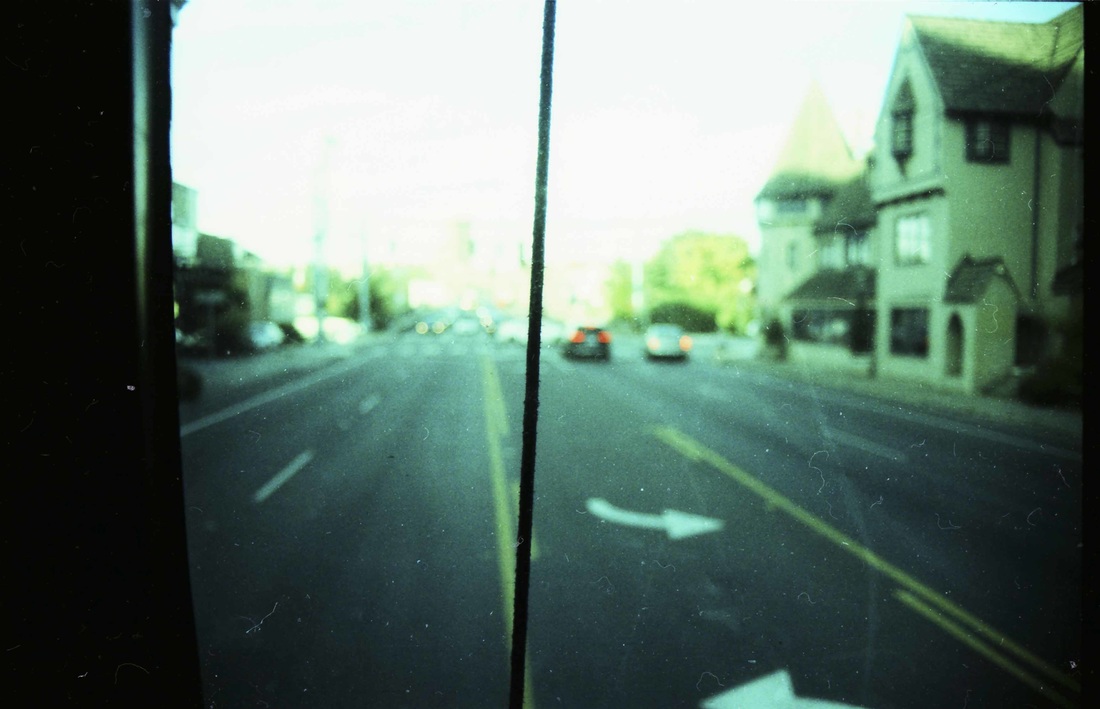
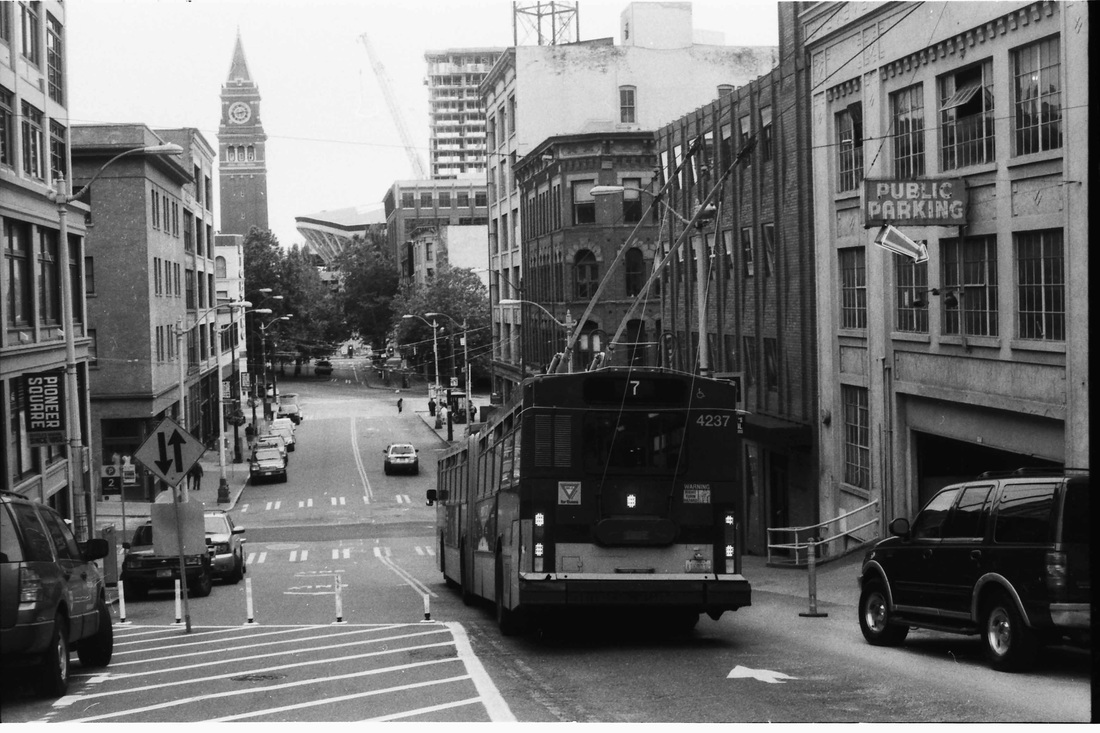
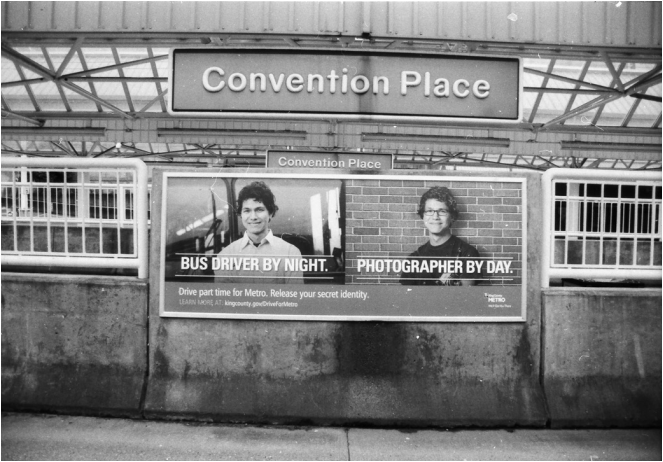
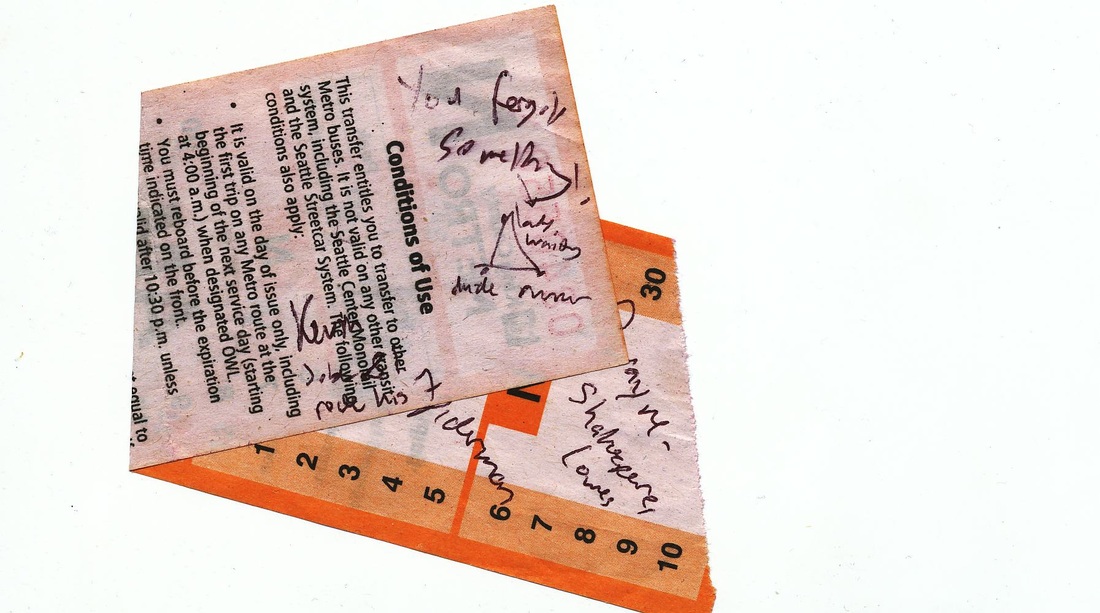
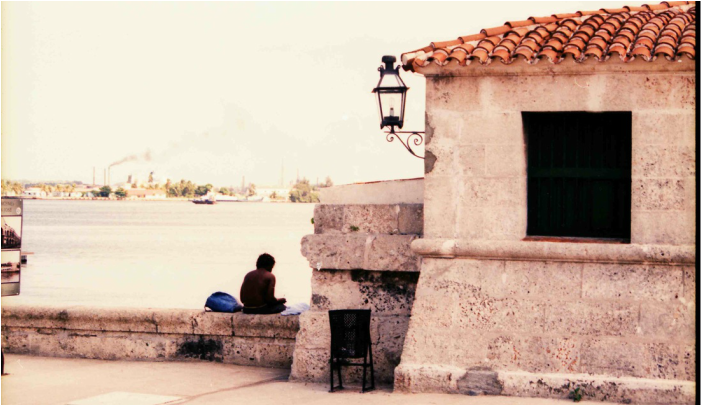
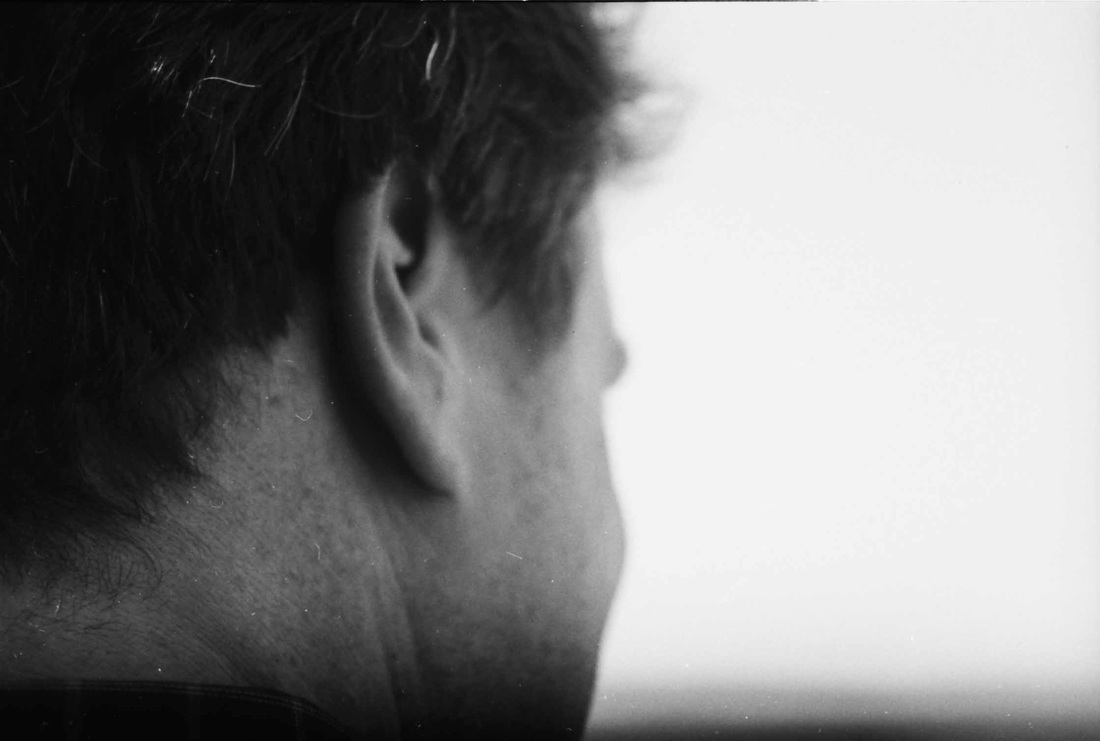
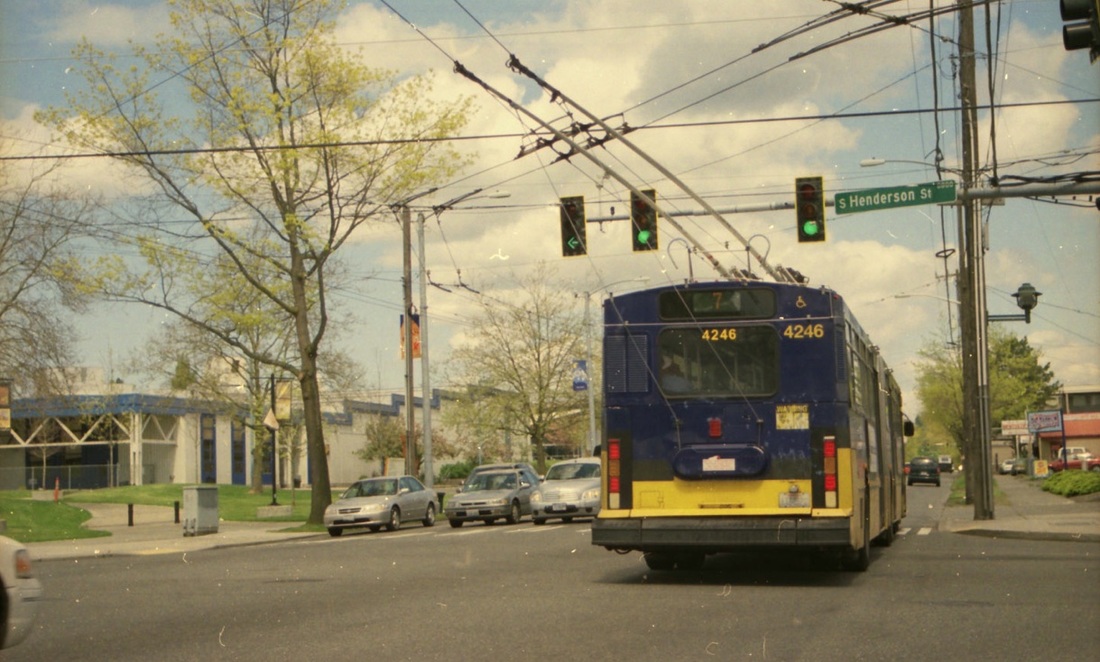
 RSS Feed
RSS Feed
